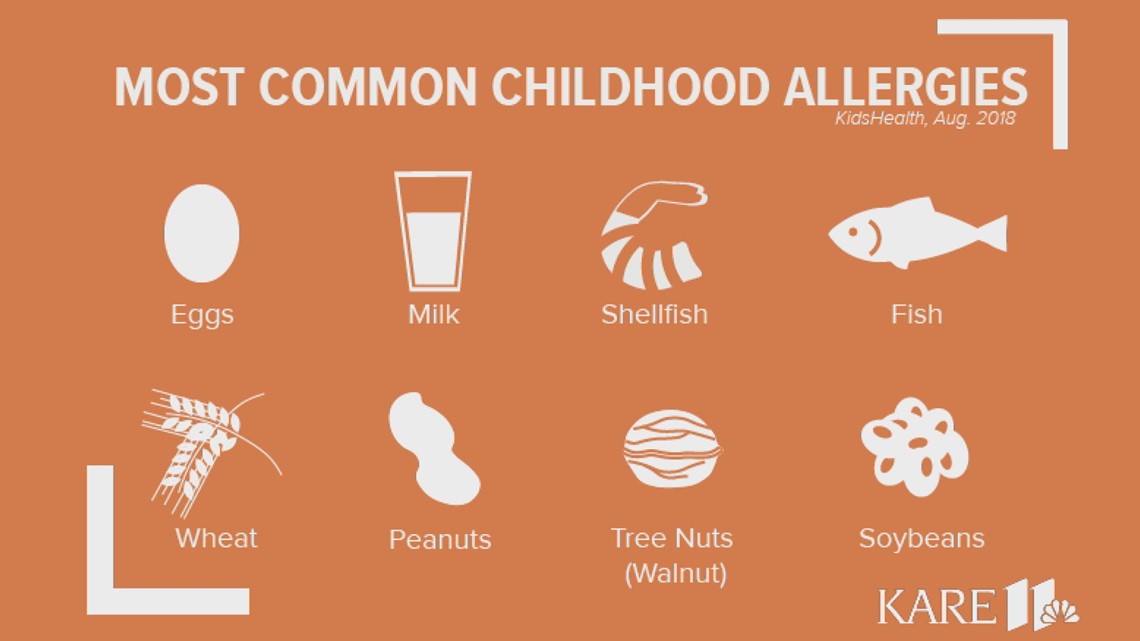BURNSVILLE, Minn. — Food allergies have risen dramatically in recent years, but new products claim they can cut a baby’s risk of developing them by up to 80 percent. It’s based on the science of early introduction.
The O’Connor family of Minnetrista knows firsthand how food allergies can impact a family’s routine. 10-year-old Keegan manages allergies to dairy, soy, eggs, wheat, peanuts, tree nuts, sesame seeds, peanuts and banana, according to his mom Adrienne.
His allergies are so severe, even contact can cause a reaction.
“He could just touch some food, milk spills, his brother spills milk and all of a sudden he’s covered in hives,” Adrienne said.


The rate of kids who have allergies like Keegan’s is skyrocketing.
“The rates of food allergies are going up and up and up, and why that happens is that we think people aren’t getting exposed to these allergenic foods early enough,” said Dr. Douglas McMahon, a private practice allergist who also teaches at the University of Minnesota.
Dr. McMahon says pediatricians used to tell parents to limit exposure to highly allergenic foods. Now, they say, the opposite is true. New studies show early introduction is key.


That research has prompted a slew of new products claiming to prevent allergies. One of those products is called Ready, Set, Food - a powder that can be placed in a baby’s bottle starting at 4 months old.
“Giving babies small amounts of food allergens starting at 3-4 months of age, not just once though but continuing multiple times per week can prevent 70 to 80 percent of food allergies," explained Daniel Zakowski, the founder of Ready Set Food. "So our product exists to make that as easy as possible.”
It’s a big claim, so is the science sound? Dr. McMahon says he’s not familiar with that specific product, but studies back up early introduction.
He has a tree nut allergy, and used early introduction with his own daughters, after some testing.
“We started giving them the foods very early at 4 months of age,” he said.
McMahon says you can use things like peanut flour to introduce the foods on your own. But, if you talk to your doctor and think a product makes it easier, go for it.
“Hopefully in 10 years we say this early introduction helped and the allergy rates are going down and down,” Dr. McMahon said.
Adrienne wishes the science would have been there when Keegan was a baby.
“If I were to have another child, I would want to follow that protocol,” she said.
So who shouldn’t use early introduction? Babies with an immediate family member who has a food allergy or who suffer from eczema should talk to an allergist first.
More from KARE 11 Sunrise:

